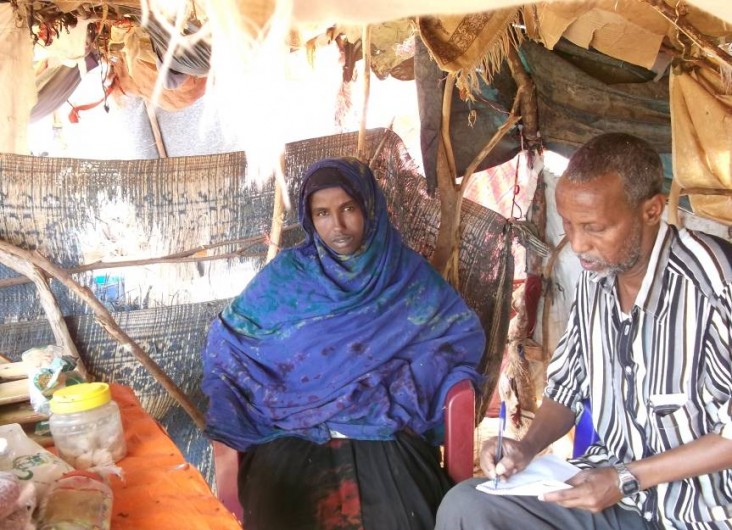
For over 20 years, Somalia has suffered from conflict and frequent drought. Persistent insecurity and restricted humanitarian access make it one of the most difficult locations in the world for humanitarian response. An estimated 870,000 people in Somalia are currently experiencing crisis-level food insecurity, the majority of whom are internally displaced persons (IDPs). In addition, another 2.3 million people remain vulnerable to shocks that could push them back into a food security crisis.
In response to the considerable needs, USAID is partnering with NGOs and international organizations to implement flexible, cash-based food assistance programs that reach food insecure Somalis, particularly those displaced internally. USAID and one of its NGO partners are providing cash transfers to people suffering from acute food insecurity. These transfers allow them to purchase food and basic non-food items on the local market, thereby supporting the local economy while increasing access to foodstuffs. Over 20,000 households in South and Central Somalia are benefitting from this intervention.
Fatuma, who uses one name, is among those who have received emergency support through cash transfers from USAID and its NGO partner. The 30-year-old found herself living in an IDP camp in southern Somalia with her husband and five children after intense conflict forced them to flee their home four years ago. Fatuma and her husband previously supported their family through farming and lost their source of food and income when they had to flee their home.
During their early days in the camp, life was very hard. Fatuma was only able to secure small jobs washing dishes and clothing. “It was hard for me to get jobs as it was based on clan and how well your family was known. My family never had regular meals and the children went to sleep without food and without education. Life was full of despair and hopelessness,” she said. As the months passed, Fatuma developed good relationships with the residents of the town, gaining access to more employment opportunities, which in turn enabled her to earn some additional income to feed her family. However, this still was not enough to meet all their needs.
In 2012, USAID and its NGO partner began implementing the second phase of a cash-based food assistance program in the region. Fatuma was selected by the NGO partner and her community to receive unconditional cash relief under this program. “I was very happy and could not believe that I would be receiving the payments,” she said.
Fatuma was able to use the cash assistance to meet her family’s basic food needs, and set aside $50 a month for three months to clear debts she had incurred to feed her family. Moreover, the project enabled her to save enough to start a small grocery stall, which will help her meet the family's food needs without support from the USAID project. Now she sells basic food products like rice, pasta, potatoes, tomatoes and maize, as well as other basic household goods to the growing community in the IDP camp.
Looking forward, Fatuma hopes to use her savings to invest in her business and ultimately generate more income, making her family more secure and less at risk from recurrent shocks.







Comment
Make a general inquiry or suggest an improvement.